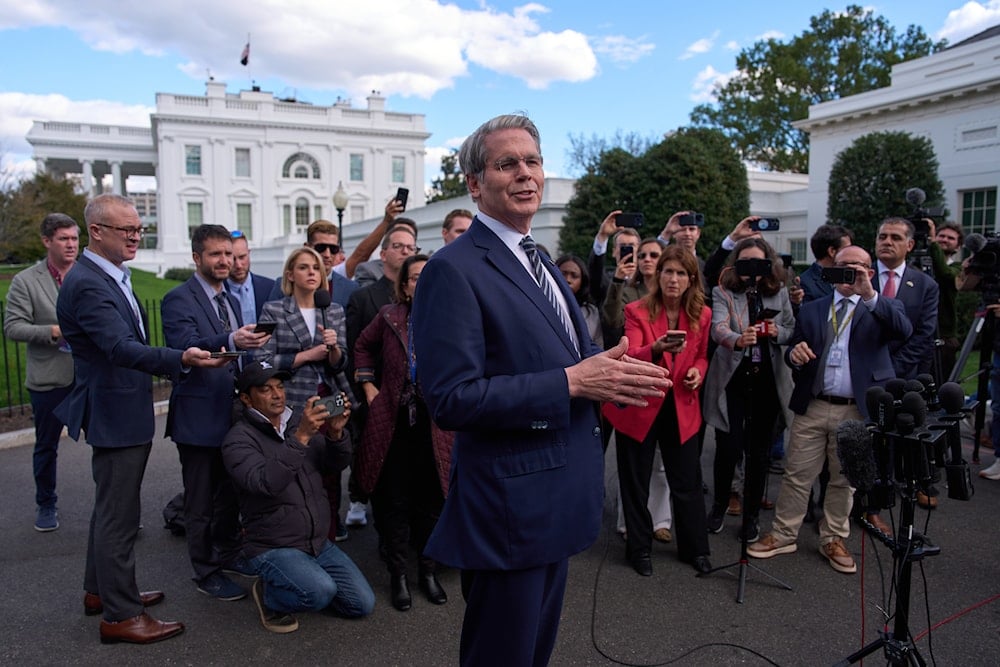China set to delay rare earths restrictions 1 year: Bessent
China will delay rare earth export curbs by a year after trade talks with the US, says Treasury Secretary Scott Bessent.
-

Treasury Secretary Scott Bessent speaks with reporters at the White House, Wednesday, Oct. 22, 2025, in Washington (AP)
China is set to delay its planned rare earths exports for one year as a result of negotiations, US Secretary of Treasury Scott Bessent announced on Sunday.
"They had threatened to put a global export licensing regime, and I believe that they are going to delay that for a year while they reexamine it," Bessent told ABC.
Meanwhile, China’s International Trade Representative and Vice Minister of Commerce, Li Chenggang, said that China and the United States reached a basic consensus during trade and economic talks in Malaysia, while each side firmly maintains its own positions.
"The US side has taken a firm position, and China is resolutely defending its interests," China Central Television reported, citing Li, who added that Beijing and Washington held an in-depth and frank dialogue on trade and economic issues.
Furthermore, the Chinese Commerce Ministry said that Beijing and Washington agreed to maintain close cooperation on trade and economic issues of mutual concern.
The ministry said in a statement that the two sides agreed to use the China-US economic consultation mechanism to maintain close cooperation, promote healthy and stable trade relations for the benefit of both peoples and global prosperity.
China, United States achieve progress in Malaysia talks
China and the US held trade talks in Kuala Lumpur from October 25-26, with the Chinese delegation headed by Vice Premier He Lifeng and the US delegation led by Treasury Secretary Scott Bessent.
Earlier, China's Vice Minister of Commerce declared that Chinese and American negotiators made progress toward reducing trade tensions as both sides agreed on a preliminary framework just days before the planned meeting between US President Donald Trump and Chinese President Xi Jinping.
Previously, on October 25, a US Treasury spokesperson told the Financial Times that trade discussions between the United States and China were described as "very constructive."
On October 10, US President Donald Trump threatened to impose an additional 100% tariff on Chinese imports and implement export restrictions on strategic software by November 1, intensifying the pressure on Beijing.
However, in a statement on October 13, Treasury Secretary Bessent suggested that Washington might delay the tariffs to give Trump and Chinese President Xi Jinping time to negotiate directly during a planned meeting in South Korea.
The recent US-China talks signal a potential shift toward de-escalation as both governments assess the economic stakes of a prolonged confrontation.

 3 Min Read
3 Min Read










